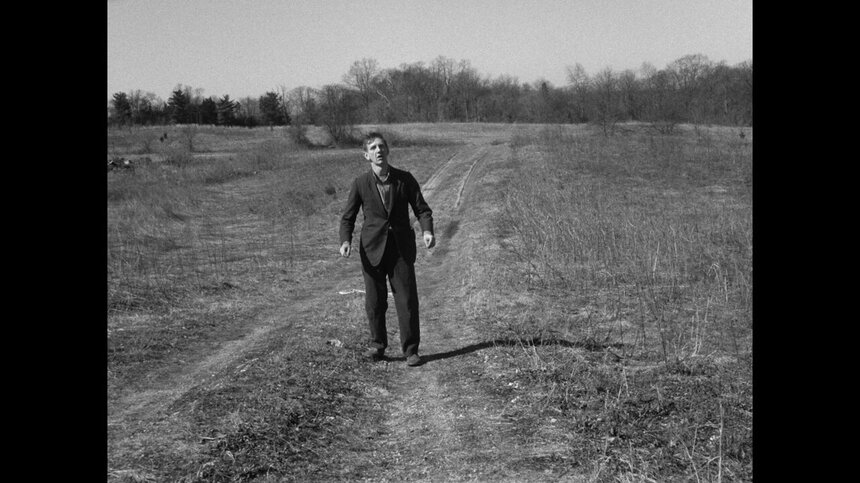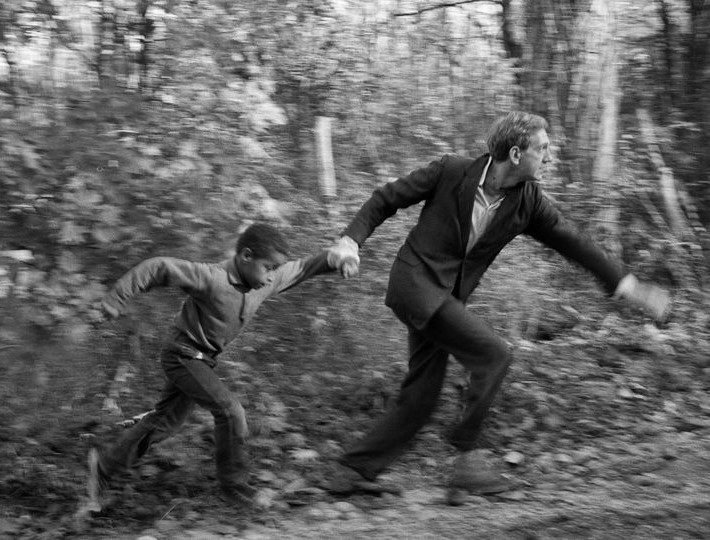TIME OF THE HEATHEN Review: Lost Indie Feature Showcases a Bleak Post-WWII America
Peter Kass' Lost Masterpiece comes to New York and Los Angeles

It's safe to say that the post-WWII years were not as good as many people had claimed for many years. Despite propaganda lauding those years as a time of prosperity and success for all, it didn't take long for that popular myth to be exposed as such. For many people, especially those of marginalized groups, there was still repression and difficulty. And despite the Allied forces success, many men came back from the war with (called at the time) shell shock, often ending up adrift in the American landscape, where they faced suspision and even hatred.
It was also a time of great experimental cinema, and while he might have had a more extensive career in theatre, director Peter Kass' film Time of the Heathen is an exceptional work that is essential viewing of mid-20th century independent American cinema. It's had a terrific 4K restoration from Arbelos and will shortly be making the rounds at art house cinemas.
It's 1949, and Gaunt (John Heffernan), a character with a very appropriate name, is wandering around the American countryside. He has no bag, no identification, only the clothes on his back and his bible, which he seems quite familiar with. Seeing a young black child Jesse (Barry Collins) apparently alone in this wilderness, he follows him. He then witnesses the aftermath of the rape and murder of Jesse's mother Marie (Ethel Ayler) at the hands of Ted (Stuart Heller). But Ted's father uses the opportunity, and his hatred of both vagrants and blacks, to blame Gaunt for the crime, forcing Gaunt to flee with Jesse in tow.
From the moment we meet him, Gaunt seems troubled, and a gentle soul. His wanderings at first don't seem to have any meaning, beyond perhaps that he can't find a place to call home, or doesn't want to. This is in paralell to Jesse and Marie - any home they have is always precarious, since a white person can, at any time, and does, take it away. Both Jesse and Gaunt find themselves looking up to the sky, to various planes in formation - it seems Jesse dreams of theme, perhaps as possible friends that he lacks on earth, whereas for Gaunt, there is fear and sadness in his eyes.
Kass never makes clear if this is the exact America of 1949 - or perhaps he conceives the edge of it, away from the post-WWII progress and thus trapped in a state where someone like Gaunt is randomly stopped and immediately suspect by not conforming to the white person's idea of the common working man, and Black people still on the cusp of the Civil Rights Movement - which would be harder to find in this bleak corner. This is also when the possibility of nuclear destruction is starting to creep into our consciousness.
And it feels so terribly bleak - but this is a compliment, as Kass seems to want to evoke that feeling that was too often pushed aside in this era, in favour of a relentless optimism that masked serious problems. Yet there is also a small glimmer of hope in the strange bond that forms quickly between Gaunt and Jesse - both lost in a world that has no use for them except as recipients of hatred and violence. Kass lets the space around these characters speak for them, as they are often forced into silence - while for Jesse that is part of his being, for Gaunt, this is due to his trauma.
In a key dream sequence, the importance of the time period - four years after the bombing of Hiroshima - is revealed. While much of the film takes advantage of the location, giving a sense of the long passages of time as experienced by people like Jesse and Gaunt, for the dream Kass takes other advantages of the cinema techniques of the era. He distorts the negative, blends images, uses sepia and other colour tones, and has the audience experience what is going on in Gaunt's head and heart.
After the more elegaic and somewhat straightforward scenes of these two being hunted down by the oppresive forces of white america, this fever-nightmare is jolting and heartwrenching in its depiction of what such hubris and hatred can bring on a global scale, and what it does to the individual forced into doing its bidding.
Born out of that ennui, rage, and disconnection of the post-war era, a product of its time and yet still relevant and relatable, Time of the Heathen is a meditative and disturbing story, parred down to a bareness that lets neither hatred nor attachment hide, stripping its characters raw.
Time of the Heathen opens at Film at Lincoln Center in New York on May 10th, and at American Cinematheque in Los Angeles on May 12th.
Time of the Heathen
Director(s)
- Peter Kass
Writer(s)
- Calvin Floyd
- Peter Kass
Cast
- John Heffernan
- Stewart Heller
- Barry Collins








